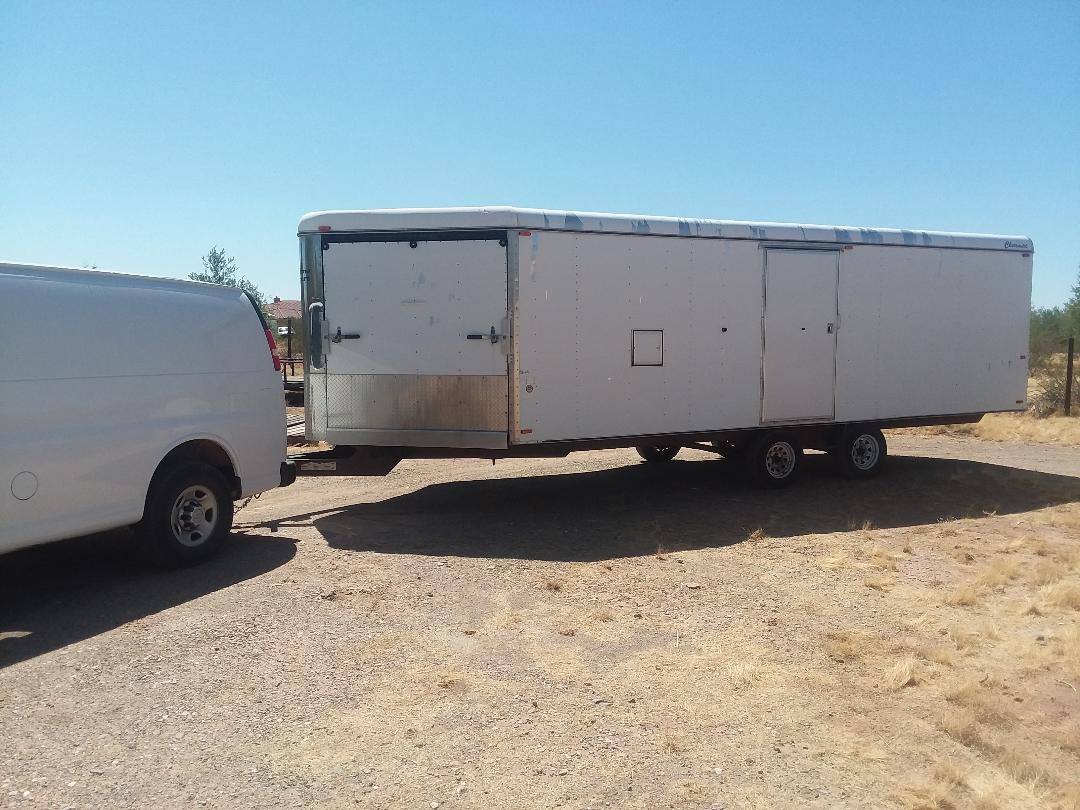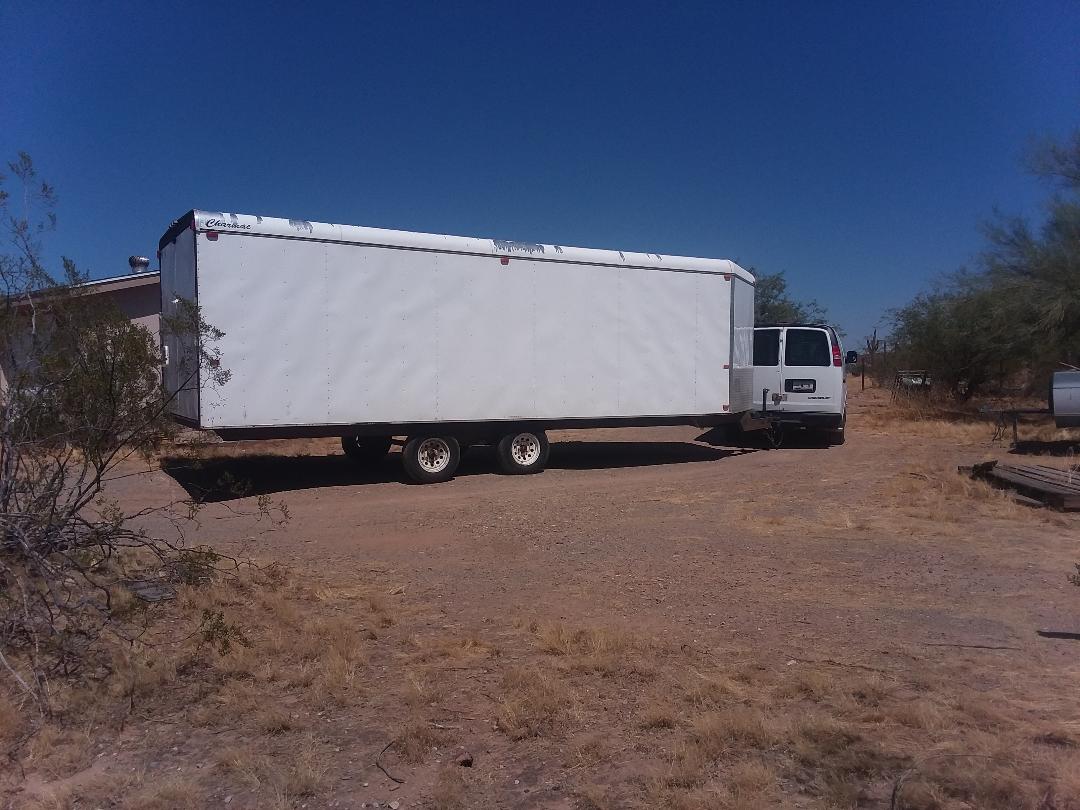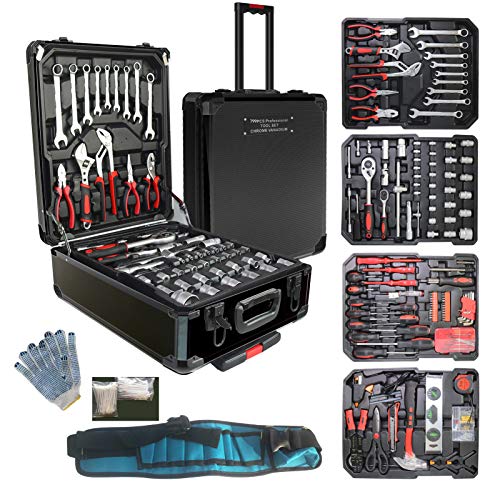I'm looking to start a van build but there are too many options out there. One of which is gas or diesel van. I have been looking at sprinter van with 3.0 diesel. Only problem is I know very little about diesel if any thing goes wrong. Though saying that I'm no gas mechanic either. What are some good options for vans. And gas or diesel?
You are using an out of date browser. It may not display this or other websites correctly.
You should upgrade or use an alternative browser.
You should upgrade or use an alternative browser.
Diesel or gas van?
- Thread starter William89
- Start date

Help Support Van Living Forum:
This site may earn a commission from merchant affiliate
links, including eBay, Amazon, and others.
RoamerRV428
Well-known member
- Joined
- Sep 11, 2018
- Messages
- 2,582
- Reaction score
- 250
I find one thing comes to mind truly about gas vs. diesel. very basic tho is the kind of driving you are doing.
Easy, more flat roads, not hauling anything behind you, gas is decent.
Uphill and downhill, big grades, tough roads, possibly hauling something with you, diesel is a better option.
That kinda starts off my thinking of which do you 'really' need. From that basic area, it is a starting point for me.
Others mileage may vary
Easy, more flat roads, not hauling anything behind you, gas is decent.
Uphill and downhill, big grades, tough roads, possibly hauling something with you, diesel is a better option.
That kinda starts off my thinking of which do you 'really' need. From that basic area, it is a starting point for me.
Others mileage may vary
speedhighway46
Well-known member
- Joined
- Nov 6, 2015
- Messages
- 728
- Reaction score
- 7
I currently own two diesel vehicles, I would offer this opinion:
1> Unless you are pulling heavy loads, you don’t need a diesel.
2> Unless you are putting on a lot of miles, say more than 20,000 a year, you don’t need a diesel.
3> Diesels cost more to purchase.
4> Diesels cost more to maintain. Dealer shop rates are not at least $125. An hour.
5> Only very rarely does diesel fuel cost less than gasoline.
6> Current gasoline engines are very reliable.
7> Get a “large” one which won’t have to work hard to do the work you want it to do.
8> In the long picture, your “vehicle” will require more repair (brakes, tires, suspension, electrics) than the motor will, especially if you follow a rigid maintenance program.
9> Gas engines will easily go 200,000 miles, and more, if you drive easy and keep your foot off the floor.
10> Don’t buy a diesel because you think they are cool; buy one because you need it, and then ready to pay the $$ necessary to maintain it.
When my Ford Excursion 7.3 with 200,000 miles goes in for maintenance it never costs less than $500.
1> Unless you are pulling heavy loads, you don’t need a diesel.
2> Unless you are putting on a lot of miles, say more than 20,000 a year, you don’t need a diesel.
3> Diesels cost more to purchase.
4> Diesels cost more to maintain. Dealer shop rates are not at least $125. An hour.
5> Only very rarely does diesel fuel cost less than gasoline.
6> Current gasoline engines are very reliable.
7> Get a “large” one which won’t have to work hard to do the work you want it to do.
8> In the long picture, your “vehicle” will require more repair (brakes, tires, suspension, electrics) than the motor will, especially if you follow a rigid maintenance program.
9> Gas engines will easily go 200,000 miles, and more, if you drive easy and keep your foot off the floor.
10> Don’t buy a diesel because you think they are cool; buy one because you need it, and then ready to pay the $$ necessary to maintain it.
When my Ford Excursion 7.3 with 200,000 miles goes in for maintenance it never costs less than $500.
Diesel just seems like a ton of work. Like you need to be a diy'er for sure. When i was coming across kansas i ran into a dude with a late 80's ford shortbus with a cummins. He blew the high pressure fuel line out of cyl 1 and was spewing diesel all over his floorboard. He was trying to JB weld it. I offered 3/8 brake line or map gas brazing. None of it was a good option. We ended up having to drive 200-300 miles down to dodge city because no one close had the part. Ford dealer had to special order.
Gas.
Diesel is the fuel of choice for heavy load-carrying vehicles and engines that are expected to be in service for a large number of miles....but for a normal, modern, passenger type vehicle that is not carrying heavy loads or pulling heavy trailers, gasoline engines are fine for most people and most situations.
This is primarily the case in the USA due to tighter emissions controls that tend to impact reliability and increase operating cost for newer diesel engines here.
Diesel is the fuel of choice for heavy load-carrying vehicles and engines that are expected to be in service for a large number of miles....but for a normal, modern, passenger type vehicle that is not carrying heavy loads or pulling heavy trailers, gasoline engines are fine for most people and most situations.
This is primarily the case in the USA due to tighter emissions controls that tend to impact reliability and increase operating cost for newer diesel engines here.
ltvanburen
New member
- Joined
- Sep 10, 2019
- Messages
- 3
- Reaction score
- 0
The reason I am considering diesel is to have the option of using biofuel. Is there anyone out there with experience doing that?

$14.49
$19.95
The Van Life Cookbook: Delicious Recipes, Simple Techniques and Easy Meal Prep for the Road Trip Lifestyle
Amazon.com

$47.61 ($47.61 / Count)
$52.91 ($52.91 / Count)
Ready Harvest Freeze-Dried Mushroom for Emergency Food Supply | Camper Must-Haves Camping Essentials | Hurricane Preparedness Items, Survival Food, Pantry Staples | #10 Can | 25-Year Shelf Life
Food Storage Depot

$30.59
$40.00
The Van Conversion Bible: The Ultimate Guide to Converting a Campervan
Amazon.com

$20.40
$24.95
The Falcon Guide to Van Life: Every Essential for Nomadic Adventures
SBA Book Store

$799.95
Goal Zero Alta 50, Portable Fridge and Portable Freezer, Energy Efficient, 53L
Goal Zero LLC

$64.91
$99.99
Augason Farms Lunch and Dinner Variety Pail Emergency Food Supply 4-Gallon Pail
Amazon.com

$50.49
$67.49
Amazon Basics 173-Piece General Household Home Repair Mechanic's Hand Tool Set with Storage Case, Portable for DIY
Amazon.com

$52.08
$60.49
Augason Farms Pasteurized Dried Whole Egg Powder Can, Real Eggs, Emergency Food Supply, Everyday Meals, 85 Servings
Amazon.com

$19.17
$23.95
Van Life Cookbook: The portable, budget-friendly and sustainable cookbook for life on the go
Amazon.com

$98.79
Mountain House Cooked Ground Beef | Freeze Dried Survival & Emergency Food | #10 Can | Gluten-Free
GOODBOY ENTERPRISES
Pleasant Travels
Well-known member
I have not yet run biofuel, and probably won't. I enjoy the hell out of my 2006 Duramax Chevy Express 2500. It tows what I need it to, and currently, diesel is cheaper than gas (here in Phoenix, anyway).
I love the idea of biodiesel;...however,...the technology in fuel delivery and injectors that has been responsible since 2003 for the great performance gains we now enjoy,...preclude most biodiesel use. Older injection tech was more compatible because it operated at lower psi than current injectors. Biodiesel is thicker and harder to spit at higher psi in the newer injectors. If you don't mind the older engines,...biodiesel is indeed still in the cards for you. The 7.3 Powerstrokes from Ford (1995-2003) were the most recent and yet still powerful motors available in a van that were able to be modified to run on BLENDED biodiesel (usually 20% waste oil). To run a motor on simply pure "greasil" (purified waste oil) only, you would have to go back to the pre-Powerstroke 7.3 IDI motor, which ended production in 1994. The Chevy 6.5 pre-Duramax motors will also run straight waste oil or bio-blend.
The good news is that the older diesel motors that can work well with waste oil are actually much less complicated to work on and cost less both to acquire and to service. The bad news, however, is that they just can't compete with the newer diesel motors and their high-psi in the performance department. Although in my opinion, the 7.3 Powerstroke comes closest and would be the best choice if horsepower numbers are important.
I love the idea of biodiesel;...however,...the technology in fuel delivery and injectors that has been responsible since 2003 for the great performance gains we now enjoy,...preclude most biodiesel use. Older injection tech was more compatible because it operated at lower psi than current injectors. Biodiesel is thicker and harder to spit at higher psi in the newer injectors. If you don't mind the older engines,...biodiesel is indeed still in the cards for you. The 7.3 Powerstrokes from Ford (1995-2003) were the most recent and yet still powerful motors available in a van that were able to be modified to run on BLENDED biodiesel (usually 20% waste oil). To run a motor on simply pure "greasil" (purified waste oil) only, you would have to go back to the pre-Powerstroke 7.3 IDI motor, which ended production in 1994. The Chevy 6.5 pre-Duramax motors will also run straight waste oil or bio-blend.
The good news is that the older diesel motors that can work well with waste oil are actually much less complicated to work on and cost less both to acquire and to service. The bad news, however, is that they just can't compete with the newer diesel motors and their high-psi in the performance department. Although in my opinion, the 7.3 Powerstroke comes closest and would be the best choice if horsepower numbers are important.
ltvanburen said:The reason I am considering diesel is to have the option of using biofuel. Is there anyone out there with experience doing that?
I have pumped BioWillie into the fuel tanks on the trucks I drove....couldn't tell any difference....
Diesel is my fuel of choice, after owning a couple of liveaboard boats in the past, I would never use gasoline due to it being highly explosive aboard.ltvanburen said:The reason I am considering diesel is to have the option of using biofuel. Is there anyone out there with experience doing that?
Personally I do not like the idea of having gasoline fuel with LPG or propane in a small area of a live in van, bus MH etc.
I own several trucks from 3 ton payload up to 40 ton payload, all run biodiesel.
Smaller ones run anything from B50 in the winter here to B90 summer mix. Larger ones run on a blend of 80% diesel 20% veg oil.
I don't know about modern diesels but biodiesel is a clean burning mix in older mechanical injected diesels and with a couple of modifications is very reliable fuel.
The little cabin I'm currently building will use biodiesel cooking / heating with a back up bio genset.
My vote was for gas, while I currently own 2 diesel tow rigs that do a wonderful job effortlessly.
-Diesel is generally .40 a gallon more than gas during the Summer, and even more when the "Winter Blends" come out in October.
-Finding diesel fuel is easy where I live, but not always easy near boondocking locations away from civilization.
-If you buy a diesel powered rig that requires DEF (diesel Exhaust Fluid), it has to be added, or have warranty issues.
-Mercedes Sprinters can be hard to find someone willing to work on them when something does go wrong (small dealer network).
-Diesel repairs are usually over twice as much as the standard gas engine repair.
-Some folks don't care for the smell of the fuel, or the exhaust.
-Diesel is generally .40 a gallon more than gas during the Summer, and even more when the "Winter Blends" come out in October.
-Finding diesel fuel is easy where I live, but not always easy near boondocking locations away from civilization.
-If you buy a diesel powered rig that requires DEF (diesel Exhaust Fluid), it has to be added, or have warranty issues.
-Mercedes Sprinters can be hard to find someone willing to work on them when something does go wrong (small dealer network).
-Diesel repairs are usually over twice as much as the standard gas engine repair.
-Some folks don't care for the smell of the fuel, or the exhaust.
My 04 6.0L (bulletproofed) diesel Excursion had to have 1 injector replaced (cracked cap) for $700, we opted to have all 4 injectors on that side of the engine replaced for $1400 total to save future costs. Mine just passed 150,000 miles, and we hope to be still own it 20 years, and another 150,000 miles from now.speedhighway46 said:When my Ford Excursion 7.3 with 200,000 miles goes in for maintenance it never costs less than $500.
Pleasant Travels
Well-known member
Try towing a 24ft V-nosed cargo trailer with a gas motor. You can go it,...but it'll suck.




Diesel in a Sprinter van, not worth it especially at that small of diesel engine. Now if you were using a truck that could be used for more than pulling your trailer then I would suggest a diesel, not in a van with that small of diesel engine or any van with a diesel engine.
ltvanburen
New member
- Joined
- Sep 10, 2019
- Messages
- 3
- Reaction score
- 0
Thank you; that is very helpful.Pleasant Travels said:I have not yet run biofuel, and probably won't. I enjoy the hell out of my 2006 Duramax Chevy Express 2500. It tows what I need it to, and currently, diesel is cheaper than gas (here in Phoenix, anyway).
I love the idea of biodiesel;...however,...the technology in fuel delivery and injectors that has been responsible since 2003 for the great performance gains we now enjoy,...preclude most biodiesel use. Older injection tech was more compatible because it operated at lower psi than current injectors. Biodiesel is thicker and harder to spit at higher psi in the newer injectors. If you don't mind the older engines,...biodiesel is indeed still in the cards for you. The 7.3 Powerstrokes from Ford (1995-2003) were the most recent and yet still powerful motors available in a van that were able to be modified to run on BLENDED biodiesel (usually 20% waste oil). To run a motor on simply pure "greasil" (purified waste oil) only, you would have to go back to the pre-Powerstroke 7.3 IDI motor, which ended production in 1994. The Chevy 6.5 pre-Duramax motors will also run straight waste oil or bio-blend.
The good news is that the older diesel motors that can work well with waste oil are actually much less complicated to work on and cost less both to acquire and to service. The bad news, however, is that they just can't compete with the newer diesel motors and their high-psi in the performance department. Although in my opinion, the 7.3 Powerstroke comes closest and would be the best choice if horsepower numbers are important.
highdesertranger
R.I.P HDR
- Joined
- Apr 4, 2012
- Messages
- 22,892
- Reaction score
- 90
the problem with diesel is the government got involved. todays diesels are way to complicated for my tastes but then so are gas engines.
diesel engines are almost twice as efficient as gas engines.
it is much easier to run older mechanical diesels off of alternate fuels, then any other engine
older mechanical diesels are super simple compared to a gas engine
most people are scared of diesels because they have no experience with them. therefore they talk them down.
for an expert on alternative fuel Low Tech needs to chime in. that is all he runs. he posted today.
highdesertranger
diesel engines are almost twice as efficient as gas engines.
it is much easier to run older mechanical diesels off of alternate fuels, then any other engine
older mechanical diesels are super simple compared to a gas engine
most people are scared of diesels because they have no experience with them. therefore they talk them down.
for an expert on alternative fuel Low Tech needs to chime in. that is all he runs. he posted today.
highdesertranger
Jimmyflorida
Well-known member
I have owned many diesel vehicles in my life i have had 4 24 valve cummins a 2005 duramax and they are better for towing if towing a big or heavy trailer but i just bought a van and i bought gas i just think it easier and cheaper if you have to do a set of injectors on a newer diesel truck its usually in the $4000-5000 range for that kinda of money you can usually get a used low mileage gas motor installed for me gas was a better option
Similar threads
- Replies
- 41
- Views
- 5K































































